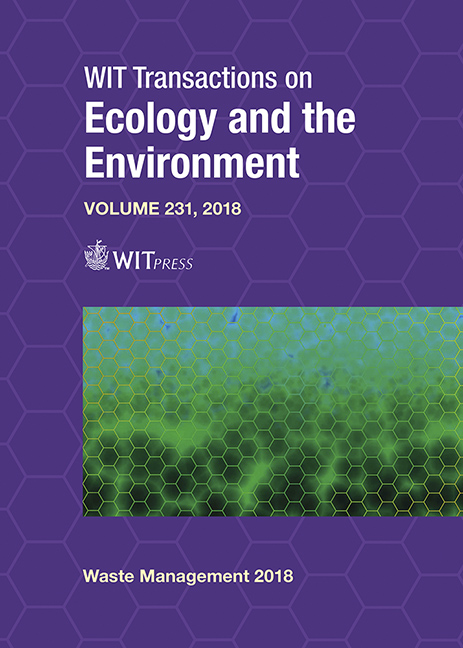ASSESSMENT OF BARRIERS PREVENTING RECYCLING PRACTICES AMONG BARS AND EATERIES IN CENTRAL SOUTH AFRICA
Price
Free (open access)
Transaction
Volume
231
Pages
10
Page Range
183 - 192
Published
2019
Paper DOI
10.2495/WM180171
Copyright
WIT Press
Author(s)
CARIEN DENNER, JANA VERMAAS
Abstract
Recycling is an important aspect of a sustainable society and depends largely on the willingness of consumers to participate in this practice. Some regions in South Africa recycle actively, but none in the central part of the country do yet. The area selected for this study included Bloemfontein, Welkom, Bethlehem, Clarens, Kroonstad, and Kimberley, which are all located in the central part of SA. Eateries and bars are businesses that generate a large amount of recyclable solid waste in terms of glass, plastic, paper, polystyrene, metal, and compostables. By identifying the barriers preventing these businesses from recycling, the local municipalities and recycling services could create a solution. Owners or employees of eateries and bars completed a self-administered questionnaire. Empirical data were obtained on knowledge of recycling and participation in recycling. Likert scale type questions were used to identify barriers that prevent recycling practices and to determine motives that could encourage the implementation of recycling programs. The respondents indicated a willingness to recycle if there is a financial benefit, as well as support offered by the municipality or government. Barriers that prevent recycling practices included implementation effort and cost, as well as lack of knowledge thereof. Only a small number of the respondents were aware of buy-back centres or collection services. These results indicate that these businesses do not grasp the impact that they can have with their recycling contributions and that the giveback would be worth the effort. They are also unaware of the services available to assist with implementation and practices of a recycling plan. The municipality and government would have to get involved by enforcing businesses to comply with recycling laws that should be implemented.
Keywords
eateries, recycling, sustainable practices, solid waste





